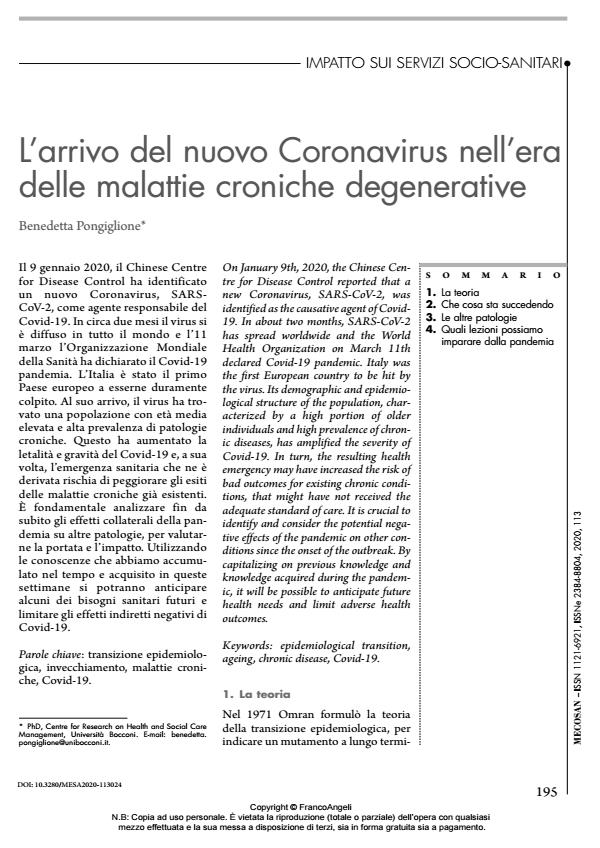L’arrivo del nuovo Coronavirus nell’era delle malattie croniche degenerative
Journal title MECOSAN
Author/s Benedetta Pongiglione
Publishing Year 2020 Issue 2020/113
Language Italian Pages 6 P. 195-200 File size 111 KB
DOI 10.3280/MESA2020-113024
DOI is like a bar code for intellectual property: to have more infomation
click here
Below, you can see the article first page
If you want to buy this article in PDF format, you can do it, following the instructions to buy download credits

FrancoAngeli is member of Publishers International Linking Association, Inc (PILA), a not-for-profit association which run the CrossRef service enabling links to and from online scholarly content.
On January 9th, 2020, the Chinese Centre for Disease Control reported that a new Coronavirus, SARS-CoV-2, was identified as the causative agent of Covid- 19. In about two months, SARS-CoV-2 has spread worldwide and the World Health Organization on March 11th declared Covid-19 pandemic. Italy was the first European country to be hit by the virus. Its demographic and epidemiological structure of the population, characterized by a high portion of older individuals and high prevalence of chronic diseases, has amplified the severity of Covid-19. In turn, the resulting health emergency may have increased the risk of bad outcomes for existing chronic conditions, that might have not received the adequate standard of care. It is crucial to identify and consider the potential negative effects of the pandemic on other conditions since the onset of the outbreak. By capitalizing on previous knowledge and knowledge acquired during the pandemic, it will be possible to anticipate future health needs and limit adverse health outcomes.
Keywords: Epidemiological transition, ageing, chronic disease, Covid-19.
Benedetta Pongiglione, L’arrivo del nuovo Coronavirus nell’era delle malattie croniche degenerative in "MECOSAN" 113/2020, pp 195-200, DOI: 10.3280/MESA2020-113024